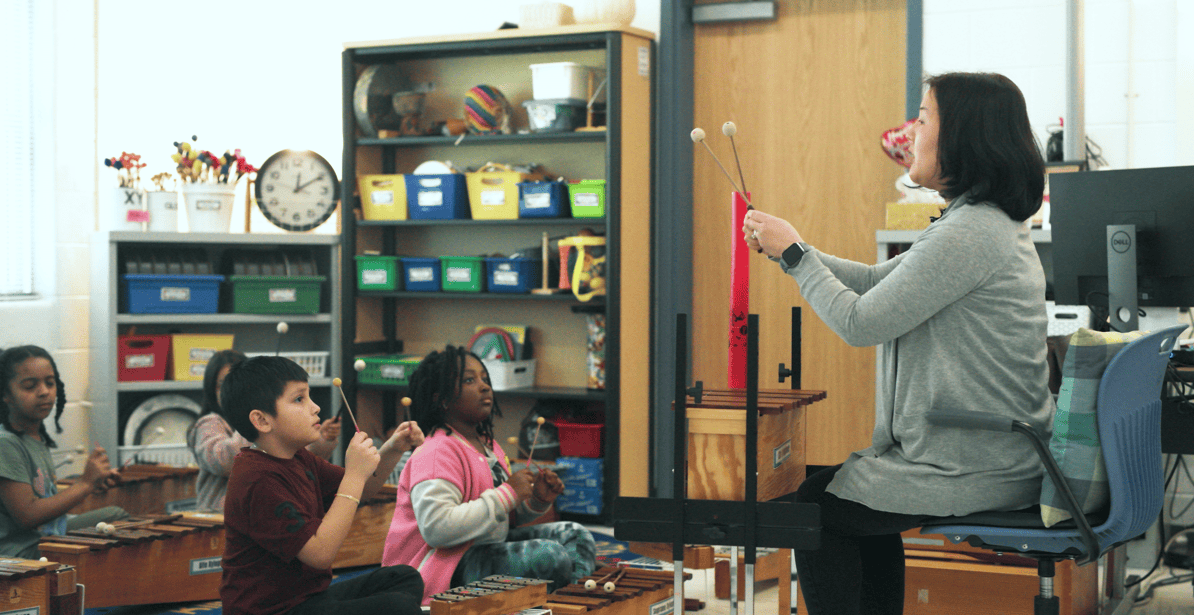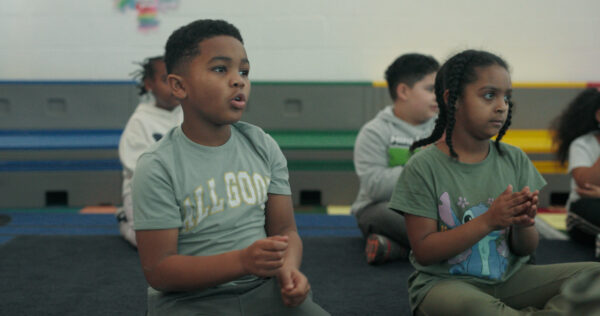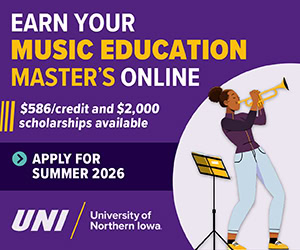/ News Posts / What Should the Future of Music Education Look Like?
What Should the Future of Music Education Look Like?
By Past President Deborah A. Confredo
This is a longer version of the article first published here by Education and Career News: Investing in Arts Education.
Music has long been sustained in schools across the country. In elementary schools, children’s experiences are focused on foundational skills that impact their development (e.g., Jaschke et al., 2018; Lippolas et al., 2022; Sala & Gobet, 2017; Solfologi et al., 2020). In secondary schools, large ensemble experiences in band, orchestra, and choir, are prevalent. While music educators have been diligent in providing systematic music instruction, the reach has been limited, particularly in grades 7-12 (e.g., Elpus, 2020; Elpus & Abril, 2019; “National Arts Education Status Report 2019”). Although, as of 2019, 92% of children have access to music education, a mere 49% actually participate in offerings. This statistic includes general music education, which is often compulsory at the elementary school level. In secondary schools, large ensemble experiences can be life changing. As we look to the future, music education’s benefits must become available to more children who may not see themselves in large ensembles. Standing alongside these beloved groups, more opportunities will appear, as prospective, first year, and early career music educators call on their experiences which may differ from their seasoned colleagues.
By 2030, it is anticipated that the proportion of Black and Brown children enrolled in public schools will be more aligned with numbers of White children compared to proportions reported in 2020 (“Racial/Ethnic Enrollment in Public Schools,” 2024). While race is not the sole determinant of a child’s musical choices, it factors into understanding familial and communal experiences that shape passions. Music education is an effective conduit for reflecting these experiences, embracing beauty found in students’ personal worlds.
The profession’s reach must be more open, with the expectation of greater possibilities. As we continue to champion students who are motivated by large ensemble experiences, we must also look to those students who choose to make music in other ways who seek entry into the profession. Tapped will be those who create using digital means, whose aural skills might outweigh reading skills, who deeply love music of the cultures that nurtured them and demonstrate skills in ways that may be at the periphery of current requirements for college-bound students. Universities will break literacy bias, teaching music reading alongside ear training, see value in multiple means of music making methods, and identify those whose potential to teach is clear, even if their precollege preparation does not fit norms.
Decades-old music teacher preparation curricula that reflect entrenched ways, and often act as closed systems, will be transformed. This includes ways of engaging students and communities in musical experiences that celebrate the individual, families, and cultures. Music education can be augmented by a seemingly endless cache of musics, plus ways of creating and engaging. Revised curricula will serve an emergent class of educators to evolve music education so that “school music” means “music for all”.
New teachers are the faces of now and the future. A shift in who enters the music educator pipeline will change attitudes and raise promise. The excitement raised from the possibilities of more musical opportunities reflective of students’ lives can bolster the musical lives of all. That is good for everyone.
References
Elpus, K. (2020). Access to arts education in America: the availability of visual art, music, dance, and theater courses in U.S. high schools. Arts Education Policy Review, 123(2), 50–69.
Elpus, K., & Abril, C. R. (2019). Who Enrolls in High School Music? A National Profile of U.S. Students, 2009–2013. Journal of Research in Music Education, 67(3), 323–338.
Jaschke, A. C., Honing, H., & Scherder, E. J. A. (2018). Longitudinal analysis of music education on executive functions in primary school children. Frontiers in Neuroscience, 12.
Lippolis, M., Müllensiefen, D., Frieler, K., Matarrelli, B., Vuust, P., Cassibba, R., & Brattico, E. (2022). Learning to play a musical instrument in the middle school is associated with superior audiovisual working memory and fluid intelligence: A cross-sectional behavioral study. Frontiers in Psychology, 13(2022), 382704-382704. 13:982704.
National Arts Education Status Report 2019. (2019).
Racial/ethnic enrollment in public schools. (2024). Retrieved December 28, 2024.
Sala, G., & Gobet, F. (2017). When the music’s over. Does music skill transfer to children’s and young adolescents’ cognitive and academic skills? A meta-analysis. Educational Research Review, 20(2017), 55-67.
Solfologi, M., Papatzikis, E., Kougioumtzis, G., Kosmidou E., Klitsioti, A., Droutme, A., Sourbi, A.-A., Chrisostomou, D., Efstratopoulou, M. (2022). Effectiveness of musical training on reading comprehension in elementary school children. Is there an associative cognitive benefit? Frontiers in Education, 7(2022).
About the author:
NAfME Past President Deborah A. Confredo is Professor of Music Education and Director of Online Graduate Studies in Music Education at Temple University (Philadelphia, Pennsylvania).
Interested in reprinting this article? Please review the reprint guidelines.
The National Association for Music Education (NAfME) provides a number of forums for the sharing of information and opinion, including blogs and postings on our website, articles and columns in our magazines and journals, and postings to our Connect member portal. Unless specifically noted, the views expressed in these media do not necessarily represent the policy or views of the Association, its officers, or its employees.
Published Date
April 10, 2025
Category
- Careers
- Collegiate
- Diversity, Equity, Inclusion, and Access (DEIA)
- Music Education Profession
- Preparation
- Technology
Copyright
April 10, 2025. © National Association for Music Education (NAfME.org)






